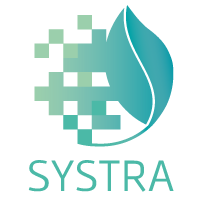Working groups
Working group 1: Status quo
The working group “Status quo” had two objectives: creating a shared understanding of transitions and of the latest transitions research within Fraunhofer ISI, and mapping Fraunhofer ISI's extant expertise in transitions research. For the first objective, a monthly reading group was created. The reading group began by reading articles that provide an overview of the current research on transitions and on the different strands of transition theory (MLP, TIS, SNM, TM) before delving deeper into multi-month thematic blocks (e.g. policy for transitions). Mapping Fraunhofer ISI's expertise revealed that transitions research is happening in projects across all competence centres and that Fraunhofer ISI already has a broad theoretical base in transitions research.
Working group 2: Types and dimensions
Socio-technical systems and transformations are characterised by a high diversity of e.g. actors, processes, dynamics, and relationships, and can differ considerably from one another. The research group “Types and dimensions” therefore focused on characterizing systems and transformations in order to identify important features of transformations and to facilitate comparisons between transformations. In an iterative process, 20 dimensions were identified that characterize systems and transformations. These characteristics were tested and specified using a number of empirical examples from the fields of energy, mobility and bioeconomy. The work of the group also provides a basis for a typology of transformations, which would allow the transfer of knowledge between transformations, especially regarding the possibilities and effects of political interventions.
Working group 3: Roles and actors
The working group on roles and actors focuses on individual and collective actors in transitions and the roles they take in different phases of transitions. A gap in the literature that was identified is a need to underpin in more detail the embeddedness of agency, i.e. the interactions between systems, system structures and actors. As a contribution to the project-based work of Fraunhofer the group also looks into identifying actors for systems under transition also specifying the relevant level of aggregation. For the actors themselves, an analysis of dispositions, including resources, psychological mechanisms and actor strategies, as well as fields and level of agency are further developed – again in their embeddedness in systems under transitions and the wider context.
Working group 4: Governance and policy
Working Group 4 focuses on
governance and policy and their role for system transitions. Because
system-wide sustainability transitions typically results from a series of
interrelated sectoral transitions, the roles of governance – defined as the
interaction between state and non-state actors for making and implementing
policies – and policy need to be adapted to these diverse settings. At the same
time, the ambition and scope of how policies can shape such transitions are
shifting paradigmatically, e.g. new policy approaches and capacities are
required, e.g. for setting directions for innovation outcomes or addressing
systemic interdepencies. Such transformative policies are typically not located
within one policy field; instead, they require whole-of-government action.
Against this background, our
project group works on insights in the policy-driven shaping of system
transitions and aim to broaden our understanding of the roles policy and
governance may play in systemic transitions towards sustainability.
Working group 5: Interactions
There is a rich literature dealing with interactions between actors in transition within a socio-technical system. Interactions between systems have been far less explored. This working group strives to provide a literature overview on papers discussing explicitly interactions between systems or covering these interactions as additional topic in their analysis. The aim is to elaborate the dimensions and a preliminary taxonomy of „inter-system-interactions“.
